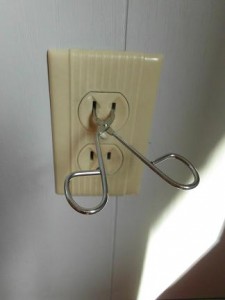Last week as I cleaned out a large, glass-front hutch, I needed to find new homes for over 50 pieces of decorative glass. The neighborhood consignment shop, a charity outlet and willing friends all factored into placing these items I loved but had no room to keep. But one piece went someplace special.
It was a glass purse [much like this picture but in cobalt blue], about 6″ high with clear glass handles. I’d noticed at our local bank that one of the tellers collects glass handbags and shares them with the rest of us by arranging them around her bank window.
I wondered if she would like my cobalt purse and decided to take it along on my next visit to the bank. I stuffed the glass purse into my leather one but then began having second thoughts. “What if her collection was given by a mother or grandmother and was based in sentimentality? What if she didn’t want any more purses? What if she said, ‘No thanks’? What if she wasn’t even at work that day?”
I didn’t know this woman personally and wasn’t sure how she’d respond. But after getting tired of my own negative back-and-forth, I decided to ditch my worries and give it to her, even if it turned out badly.
Waiting at her teller station surrounded by pretty purses, I felt self-conscious. Others were standing behind me, watching. When she finally came, I nudged my glass purse toward her and sheepishly said, “Is there room for one more?”
She gasped with delight and clapped her hands together, then threw them both in the air. Picking it up carefully as if it were an injured baby bird she said, “Oh my goodness! It’s absolutely gorgeous! Oh my word! Really? Oh dear! Thank you!”
On and on she lavished praise on my little offering and on me, and I felt like a kindergartener who’d just become student of the week. As I walked to the car, I thought back to my negative self-talk and felt ridiculous. How silly to have worried over her reaction.
Mary reminded me later of a quote from George Sweeting: “Never suppress a generous impulse.” I like that, because it’s a clean-cut way to make a quick decision without the stress of second-guessing. Besides, it’s a good way to live.
So what was behind my wishy-washy self-talk? The answer can only be self-focused pride. I was nervous about what she (and the others in line) would think of me. I was afraid of being embarrassed or rejected. And I wanted to be approved of, as a gift-giver.
God clearly states the dangers of prideful thinking:
- Pride leads to disgrace…
- Pride leads to conflict…
- Pride goes before destruction…
- Pride ends in humiliation… (Proverbs 11, 13, 16, 29)
Avoiding all of these is a good idea.
When I returned to the bank today, I used the drive-thru. “My” teller was managing the vacuum tubes, and when she saw me, she thanked me enthusiastically for the purse. By her kind response, she’s underscored a good rule to live by: never suppress a generous impulse.




